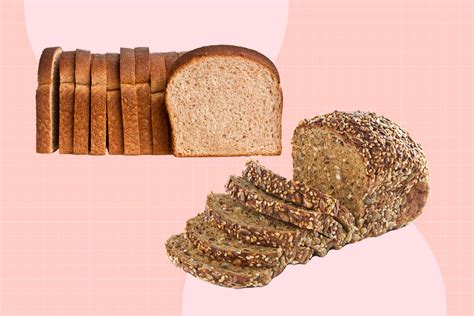Nutrition for optimizing male hormone levels & vitality for peak performance?

Fueling Masculinity: The Nutritional Blueprint for Optimal Hormones & Performance
For men aspiring to reach peak performance in all aspects of life – physical, mental, and emotional – optimizing hormone levels and maintaining robust vitality is paramount. While factors like exercise and sleep play crucial roles, nutrition stands as a foundational pillar. A well-crafted diet can significantly influence hormone production, energy levels, cognitive function, and overall well-being, paving the way for sustained peak performance.
The Hormonal Connection to Peak Performance
Testosterone, often considered the primary male hormone, is central to men’s health and performance. It influences muscle mass, bone density, fat distribution, red blood cell production, libido, and mood. Optimal testosterone levels are linked to increased energy, better focus, improved strength, and a greater sense of well-being. When these levels dip, men can experience fatigue, decreased muscle mass, reduced libido, mood swings, and a decline in overall vitality and performance. Fortunately, dietary choices can profoundly impact the body’s ability to produce and regulate these vital hormones.

Macronutrients: The Foundation of Hormone Synthesis
The building blocks of our diet – fats, proteins, and carbohydrates – are not just sources of energy; they are critical for hormone synthesis and regulation.
Healthy Fats: Essential for Testosterone Production
- Testosterone and other steroid hormones are derived from cholesterol. Adequate intake of healthy fats provides the necessary precursors for hormone production.
- Prioritize: Monounsaturated fats (avocados, olive oil, nuts) and polyunsaturated fats, especially omega-3 fatty acids (fatty fish like salmon, flaxseeds, walnuts). Saturated fats in moderation from quality sources can also be beneficial.
Protein: Building Blocks for Muscle & Hormones
- Sufficient protein intake is vital for muscle repair and growth, which supports a healthy metabolic rate and indirectly hormone balance. Amino acids from protein are also involved in neurotransmitter synthesis, affecting mood and cognitive function.
- Prioritize: Lean meats, poultry, fish, eggs, legumes, and high-quality dairy.
Complex Carbohydrates: Sustained Energy & Stress Management
- While low-carb diets have their place, chronically low carbohydrate intake can sometimes stress the adrenal glands, potentially impacting cortisol and testosterone levels. Complex carbohydrates provide sustained energy, support thyroid function, and aid in managing cortisol levels.
- Prioritize: Whole grains (oats, quinoa, brown rice), fruits, and starchy vegetables (sweet potatoes).
Micronutrients: The Unsung Heroes of Hormonal Health
Certain vitamins and minerals are indispensable cofactors in hormone synthesis and regulation.
Zinc: A Powerhouse for Testosterone
- Zinc is crucial for testosterone production and plays a role in hundreds of enzymatic reactions in the body. Deficiencies are often linked to lower testosterone levels.
- Sources: Oysters (exceptionally high), red meat, poultry, pumpkin seeds, lentils.
Vitamin D: The Sunshine Hormone’s Ally
- Often referred to as a pro-hormone, Vitamin D is directly linked to testosterone levels. Adequate levels are associated with higher free testosterone.
- Sources: Sunlight exposure, fatty fish (salmon, mackerel), fortified dairy, egg yolks.

Magnesium: Enhancing Free Testosterone
- Magnesium is involved in over 300 biochemical reactions, including muscle and nerve function, blood glucose control, and blood pressure regulation. It can also help increase free (bioavailable) testosterone by reducing its binding to sex hormone-binding globulin (SHBG).
- Sources: Leafy green vegetables (spinach, kale), nuts (almonds, cashews), seeds, legumes, dark chocolate.
Other Key Players: Boron, Selenium, B Vitamins
- Boron: May influence sex hormone metabolism and reduce SHBG.
- Selenium: Important for thyroid function, which indirectly affects testosterone.
- B Vitamins: Essential for energy production and stress response, supporting overall hormonal balance.
Dietary Strategies for Hormonal Harmony
Beyond individual nutrients, adopting a holistic dietary approach is key:
- Embrace Whole, Unprocessed Foods: Focus on a diet rich in fruits, vegetables, lean proteins, healthy fats, and whole grains. These foods provide a spectrum of nutrients and fiber, supporting gut health, which is increasingly linked to hormone regulation.
- Limit Processed Sugars and Refined Carbs: These can lead to insulin spikes, inflammation, and oxidative stress, all of which can negatively impact hormone balance.
- Moderate Alcohol Consumption: Excessive alcohol intake can impair liver function and directly reduce testosterone production.
- Stay Hydrated: Water is essential for every bodily function, including nutrient transport and cellular processes crucial for hormone synthesis.

Lifestyle Integration: Beyond the Plate
While nutrition is paramount, it functions best when integrated with other healthy lifestyle habits. Adequate sleep (7-9 hours), regular resistance and cardiovascular exercise, and effective stress management techniques (meditation, yoga, mindfulness) all synergistically support optimal hormone levels and overall vitality. A holistic approach ensures that the body’s systems are all working in harmony.

Conclusion: A Holistic Path to Peak Male Vitality
Optimizing male hormone levels and achieving peak performance is an achievable goal with the right nutritional strategy. By focusing on a balanced intake of healthy fats, quality proteins, complex carbohydrates, and essential micronutrients like zinc, Vitamin D, and magnesium, men can lay a robust foundation for hormonal health. Paired with consistent exercise, sufficient sleep, and stress reduction, a mindful nutritional approach empowers men to unlock their full potential, enhancing vitality, energy, and overall quality of life. Consistency and a commitment to whole, nutrient-dense foods are the true keys to sustained peak performance.









